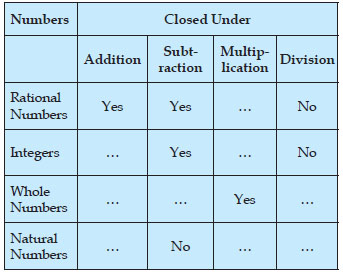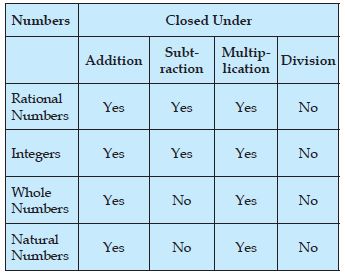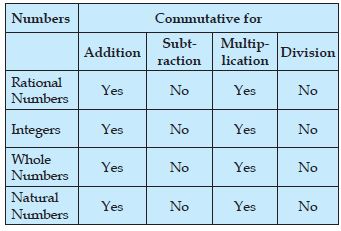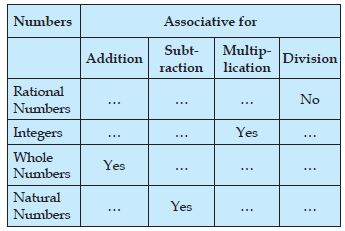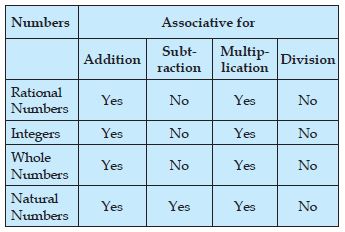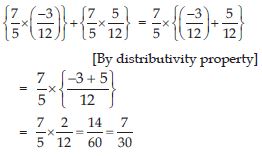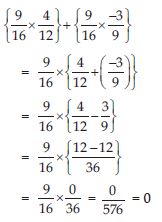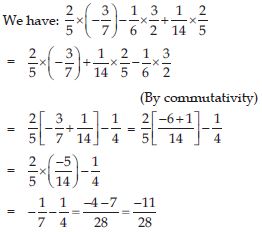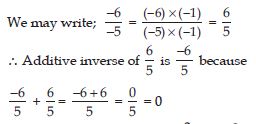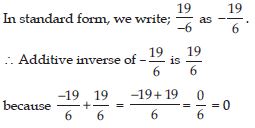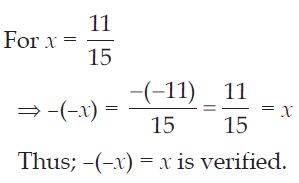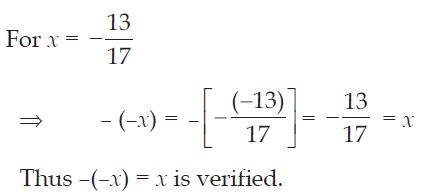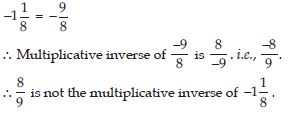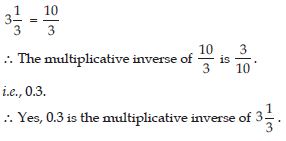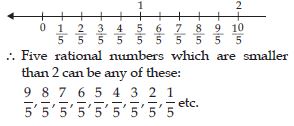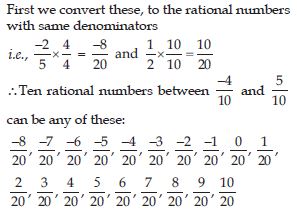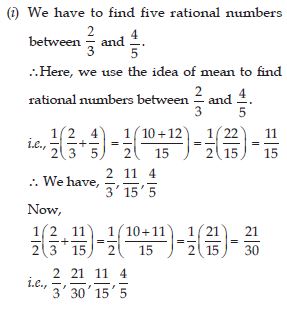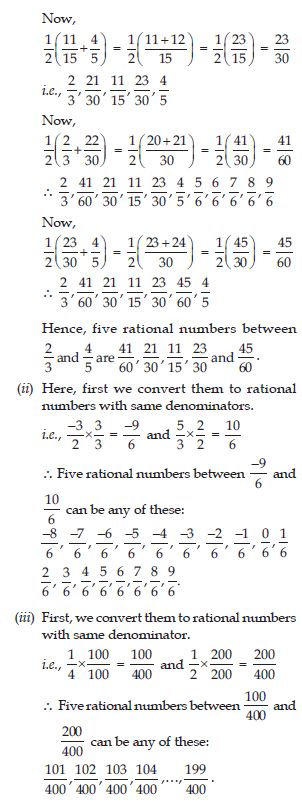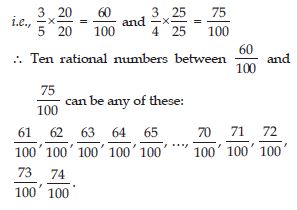Question 1:
Fill in the blanks in the following table:
Answer:
Question 2:
Complete the following table:
Answer:
Question 3:
Complete the following table:
Answer:
Question 4:
Find using distributivity
Answer:
Question 5:
Find using distributivity
Answer:
Question 6:
Using appropriate properties find:
Answer:
Question 7:
Using appropriate properties find:
Answer:
Question 8:
Write the additive inverse of the following:
Answer:
Question 9:
Write the additive inverse of the following:
Answer:
Question 10:
Write the additive inverse of the following:
Answer:
Question 11:
Write the additive inverse of the following:
Answer:
Question 12:
Write the additive inverse of the following:
Answer:
Question 13:
Verify that: −(−x) = x for:
Answer:
Question 14:
Verify that: −(−x) = x for:
Answer:
Question 15:
Find the multiplicative inverse of the following:
–13
Answer:
Question 16:
Find the multiplicative inverse of the following:
Answer:
Question 17:
Find the multiplicative inverse of the following:
Answer:
Question 18:
Find the multiplicative inverse of the following:
Answer:
Question 19:
Find the multiplicative inverse of the following:
Answer:
Question 20:
Find the multiplicative inverse of the following:
–1
Answer:
Question 21:
Name the property under multiplication used of the following:
Answer:
Multiplicative identity.
Question 22:
Name the property under multiplication used of the following:
Answer:
Commutative property of multiplication.
Question 23:
Name the property under multiplication used of the following:
Answer:
Multiplicative inverse.
Question 24:
Answer:
Question 25:
Tell what property allows you to compute:
Answer:
Associativity of multiplication.
Question 26:
Answer:
Question 27:
Answer:
Question 28:
Write:
(i) The rational number that does not have a reciprocal.
(ii) The rational numbers that are equal to their reciprocals.
(iii) The rational numbers that is equal to their negative.
Answer:
(i)
(ii) 1 and (–1).
(iii) Zero.
Question 29:
Zero has _______________reciprocal.
Answer:
no
Question 30:
The numbers ______________ and ____________ are their own reciprocals.
Answer:
1 and –1
Question 31:
The reciprocal of –5 is ___________ .
Answer:
Question 32:
Reciprocal of

Answer:
x
Question 33:
The product of two rational numbers is always a _____________.
Answer:
rational number
Question 34:
The reciprocal of a positive rational number is __________.
Answer:
positive
Question 35:
Represent these numbers on the number line:
Answer:
Question 36:
Answer:
Question 37:
Write five rational numbers which are smaller than 2.
Answer:
Question 38:
Answer:
Question 39:
Find five rational numbers between
Answer:
Question 40:
Write five rational numbers greater than −2.
Answer:
Five rational numbers greater than −2 are given by : –1, 0, 1, 2, 3, 4, 5 etc.
Question 41:
Answer:
First convert them to rational numbers, with the same denominators.
Question 42:
Write the rational number for each point labelled with a letter.
Answer:
Question 43:
Write the rational number for each point labelled with a letter.

